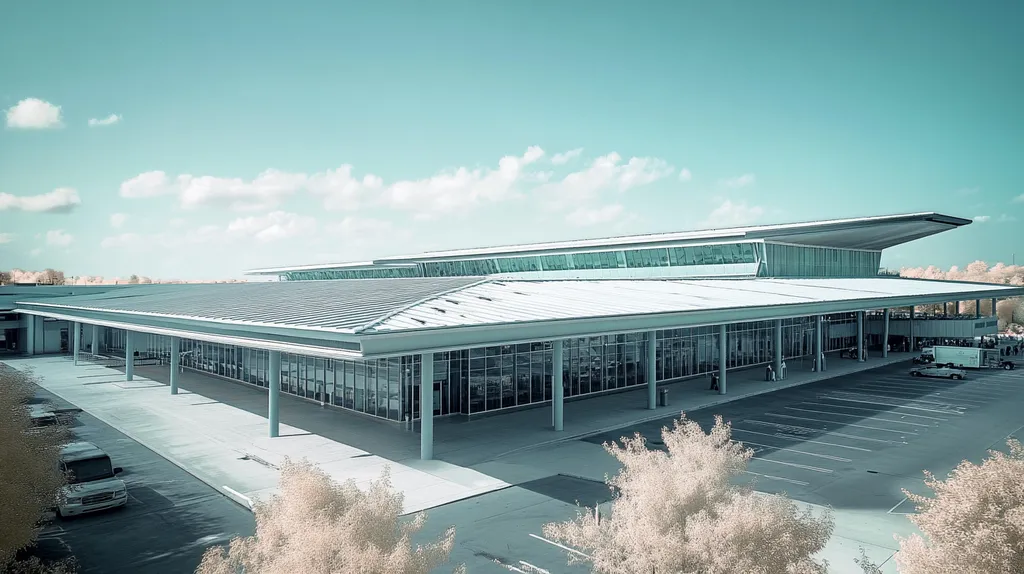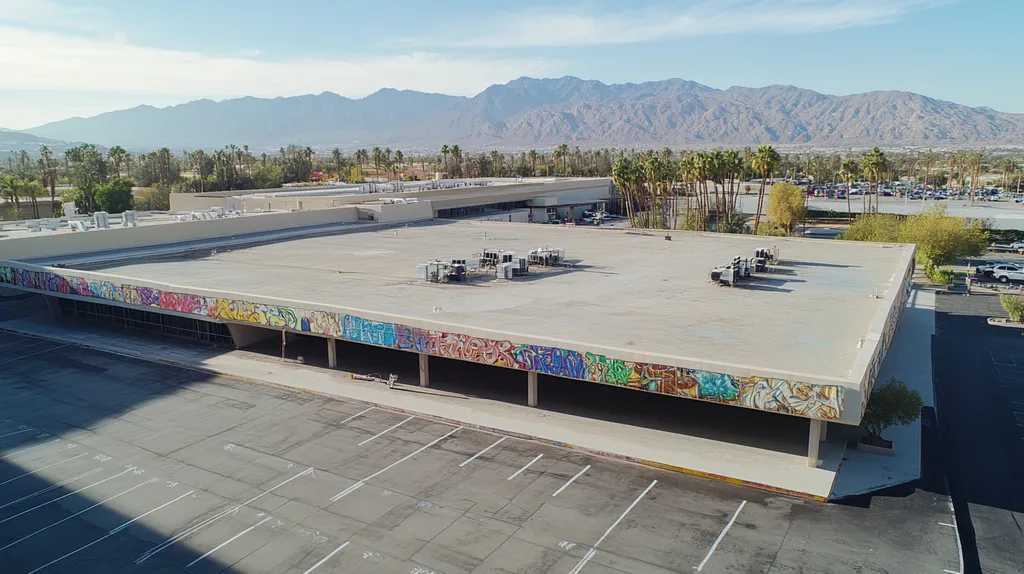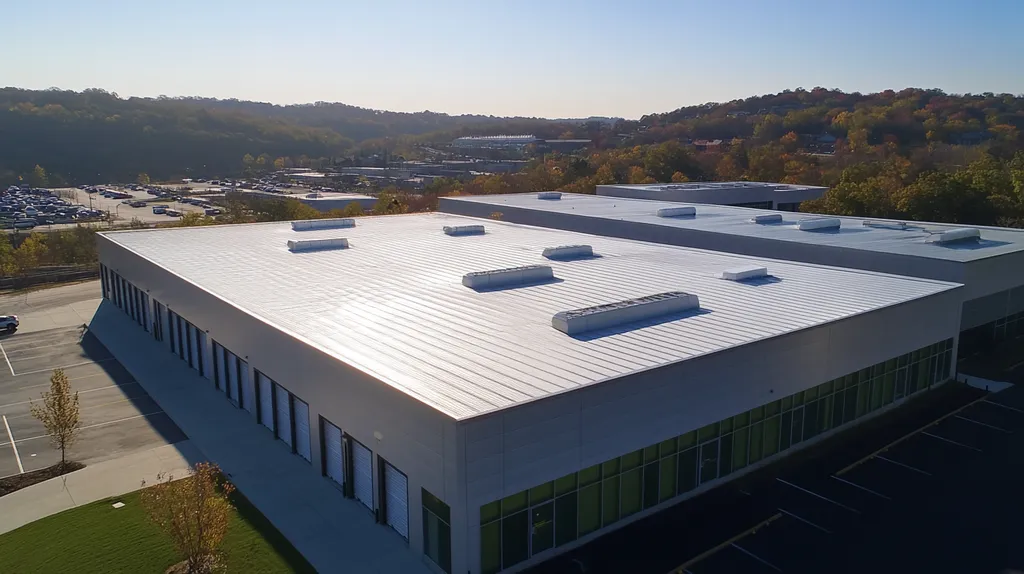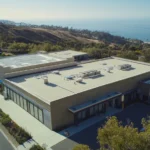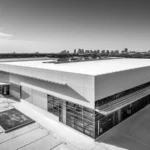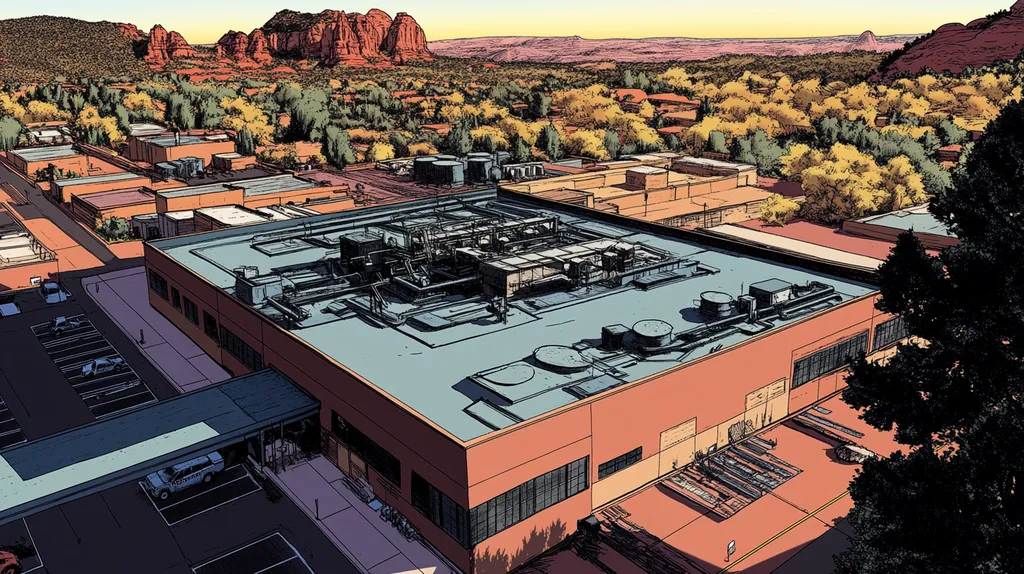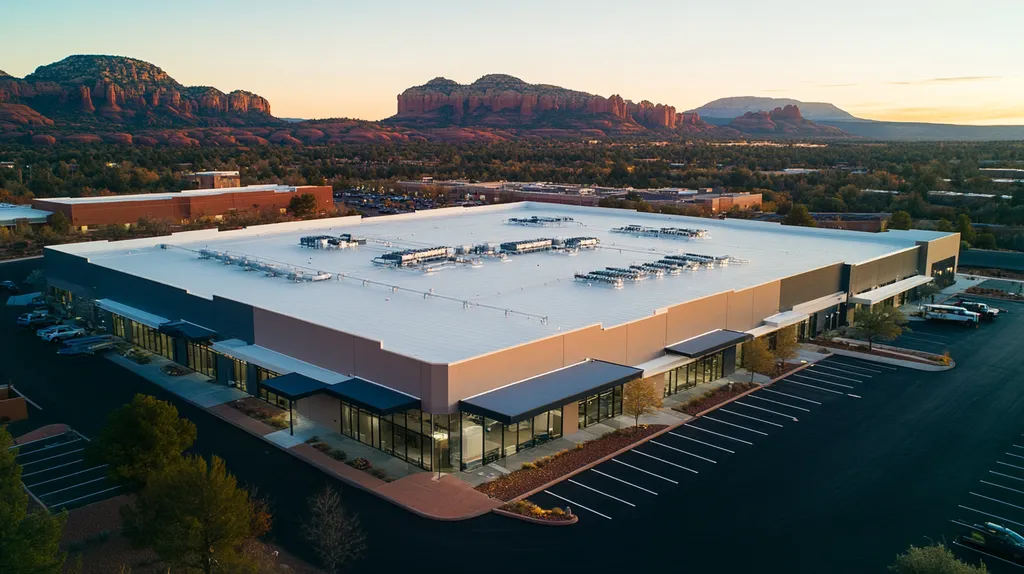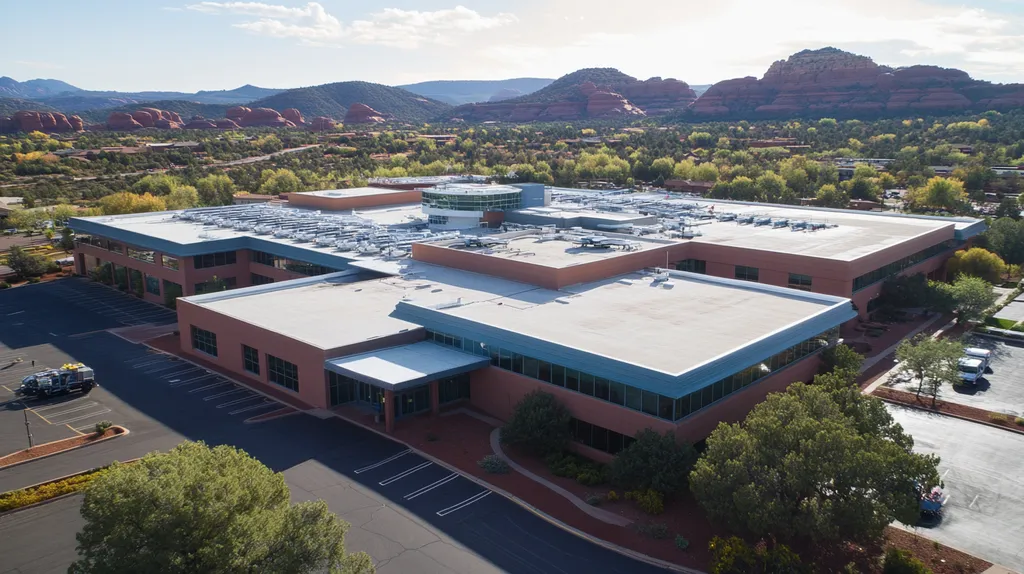In today’s commercial roofing industry, proper contractor certification can mean the difference between a roof that lasts decades and one that fails prematurely. Studies show that up to 40% of commercial roof failures stem directly from improper installation by uncertified contractors, resulting in billions in damage annually.
For property owners and facility managers, understanding contractor certifications isn’t just about compliance—it’s about protecting their investment and ensuring long-term building integrity.
This comprehensive guide breaks down the essential certifications, requirements, and standards that define professional commercial roofing, empowering stakeholders to make informed decisions when selecting qualified contractors.
SECTION 1: THE BASICS EXPLAINED
In the world of commercial roofing, contractor certifications do more than impress potential clients; they play a vital role in ensuring the safety and longevity of your building. Poorly installed roofs can lead to disastrous leaks, costly repairs, and structural failures. By understanding contractor certifications, property owners can make informed decisions that safeguard their investments and ensure compliance with industry standards. This section will illuminate what contractor certifications entail, why they matter, and the process behind them.
What It Is (In Plain Language)
Contractor certifications signify that a roofing contractor has met rigorous industry standards. These formal recognitions are bestowed by manufacturers, trade organizations, or regulatory bodies. Obtaining these certifications requires contractors to complete specialized training and demonstrate their knowledge of best practices in roofing installation and maintenance.
For instance, a contractor certified by a top roofing material manufacturer has undergone extensive training specific to their products. This ensures that installations are not only compliant but optimized for performance and durability.
Certification typically involves thorough testing and evaluation. As a result, certified contractors have proven their ability to deliver work that meets high industry benchmarks, making them reliable partners for property owners.
In essence, certifications act as a guarantee of competence, reassuring property owners that their contractor is well-equipped to manage their roofing needs effectively.
Why It Matters (To Your Building)
Recognizing the importance of contractor certifications is essential for maintaining the integrity of a building. A certified contractor is more likely to select suitable materials and adhere to best practices, significantly extending the roof’s lifespan. This consideration is crucial, as replacing an average flat roof can cost property owners thousands of dollars.
Additionally, many manufacturers will only honor warranties when the installation is executed by a certified contractor. If a roof fails due to improper installation, property owners could incur substantial financial losses from repair or replacement expenses.
Building codes and safety regulations often mandate specific certifications for compliance. During inspections or audits, certified contractors ensure that the roofing work aligns with necessary legal requirements, preserving the building’s value.
By choosing certified contractors, property owners gain peace of mind, minimize future costs, and enhance the durability of their roofing systems.
How It Works
The journey to obtaining contractor certifications involves several important steps. Contractors must first meet certain prerequisites, such as relevant experience, education, and positive references from former projects. This ensures a foundation of quality in their work.
Following this, they usually complete specialized training covering installation methods, material handling, and safety practices. This preparation allows them to stay ahead of roofing trends and identify potential issues before they escalate.
Once the training is complete, contractors typically take a certification exam that evaluates their knowledge and skill. This exam includes both theoretical questions and practical demonstrations to ensure that only truly qualified professionals receive certification.
After successfully passing the exam, contractors earn their certification, which must be renewed periodically. This ongoing education keeps them up-to-date with evolving industry standards, essential for maintaining excellence in commercial roofing work.
SECTION 2: PRACTICAL APPLICATIONS
In the realm of commercial roofing, contractor certifications are critical, as the stakes are incredibly high. Nearly 30% of roofing failures occur due to improper installation, which can lead to severe leaks and expensive repairs. Property owners and facility managers must recognize that compliance with these certification standards is not just a formality; it can profoundly influence a roof’s durability and overall performance. This section delves into the common applications of certifications, identifies key moments when they are most essential, and examines how they interact with other vital building systems.
Common Uses & Examples
Contractor certifications play a pivotal role in ensuring high-quality outcomes in commercial roofing projects. Primarily, they act as a benchmark for professional expertise. For example, a contractor certified in specific roofing materials showcases their ability to install them meticulously, thereby reducing the likelihood of costly leaks and extensive water damage.
Moreover, these certifications are crucial for adhering to local and national building codes. Contractors accredited by organizations like the National Roofing Contractors Association (NRCA) are well-versed in compliance regulations, ensuring that projects meet legal requirements and shielding property owners from potential fines.
On top of that, many manufacturers impose certification requirements to validate warranty eligibility. If a property owner opts for a premium roofing membrane, hiring a certified installer may be necessary to keep warranty coverage intact. Neglecting this requirement could void warranty claims, resulting in significant financial repercussions.
In summary, contractor certifications not only ensure quality assurance but also protect investments, fortifying the building’s overall integrity.
When You Need It Most
There are specific moments in the roofing lifecycle when contractor certifications become even more crucial. The most significant is during new construction. An improperly installed roof can lead to a cascade of maintenance issues down the line, making it essential to engage a certified contractor from the very beginning.
Another critical juncture is during roof replacements. Certified contractors bring specialized skills to ensure that old and degraded materials are replaced correctly. This proactive approach can lead to long-term cost savings, preventing premature roofing failures.
Additionally, scenarios involving unexpected repairs underscore the need for certified contractors. When a storm or an accident damages a roof, hiring a certified professional ensures a swift and effective response. Their familiarity with emergency protocols allows for rapid repairs, minimizing further damage and costs.
Ultimately, recognizing these key moments empowers property owners and facility managers to safeguard their roofing investments.
Interactions With Other Systems
The interplay between roofing systems and other components of a building is vital and cannot be ignored. Certified contractors possess the expertise to ensure that roofing systems work harmoniously with HVAC, plumbing, and electrical systems. This synergy prevents costly mismatches that could lead to system failures.
For instance, the insulation of a roof significantly influences the performance of the HVAC system. A certified contractor will ensure that insulation is correctly installed, thereby enhancing energy efficiency and comfort throughout the building. Inadequate insulation can cause HVAC units to overwork, driving energy costs up.
Furthermore, effective roofing systems must integrate seamlessly with drainage systems. A certified contractor understands how to create appropriate slopes and install gutters that channel water away from crucial areas. Improper drainage can lead to ponding, posing serious risks to both the roof and the structure beneath it.
By prioritizing certifications, property owners can facilitate the efficient integration of roofing with other essential systems, ultimately contributing to the building’s longevity and overall health.
SECTION 3: KEY TERMINOLOGY DECODED
Navigating commercial roofing terminology is crucial for making well-informed decisions. Misunderstandings can result in significant financial loss, compliance challenges, or project delays. Alarmingly, nearly 30% of roofing failures stem from such misinterpretations around terms and specifications. By unearthing essential terms, clarifying critical measurements, and simplifying industry jargon, stakeholders can align effectively on project goals and requirements. This section demystifies the language of roofing, paving the way for smoother communication and successful outcomes.
Essential Terms Explained
When discussing roofing, terms like “membrane,” “flashing,” and “underlayment” are fundamental. A membrane is a waterproof layer crucial for safeguarding the roof against leaks, while flashing directs water away from vulnerable areas, such as chimneys and roof joints. These elements are instrumental in maintaining a dry and secure structure.
Property owners must clearly communicate their needs to contractors. For example, specifying “membrane roofing” requires an understanding of the various materials available, such as TPO or EPDM, to avoid costly misunderstandings during installation. Additional terms like “drainage system” and “insulation” are equally important. A well-designed drainage system extends the roof’s lifespan, while insulation directly influences energy efficiency and moisture control.
Clarifying these essential terms fosters smoother interactions and enhances collaboration between contractors and property owners, laying a solid foundation for successful roofing projects.
Industry Jargon Translated
The commercial roofing industry is filled with specialized jargon that can feel overwhelming. Terms like “R-value,” “thermal bridging,” and “slope” are frequently used but may be unfamiliar. R-value measures the thermal resistance of insulation, with higher values indicating better performance in resisting heat flow.
Thermal bridging happens when conductive materials allow heat to escape through walls or roofs, impacting temperature regulation. Understanding this term can help property owners identify potential energy loss in their buildings. The term “slope” refers to the roof’s angle, which significantly affects water drainage and design choices.
Familiarity with this jargon empowers property owners and facility managers to engage more meaningfully with contractors. For instance, grasping why slope matters can lead to more informed material selections and maintenance strategies, facilitating targeted solutions for roofing challenges.
Measurement & Units Simplified
Measurements in the roofing sector can often be a source of confusion. Key units include square feet for area and inches for measuring roof slope. In roofing terminology, a “square” denotes a 100 square-foot area, crucial for estimating materials and costs accurately.
Roof slope is expressed as a ratio, like 4:12, indicating that the roof rises 4 inches for every 12 inches of horizontal distance. Understanding these measurements is vital for determining drainage strategies and selecting appropriate materials.
Grasping these calculations simplifies the project planning phase. Accurate assessments lead to proper material orders, minimizing waste and helping projects stay on budget. Ultimately, mastering these measurements enables property owners to engage confidently with contractors, significantly enhancing project outcomes.
SECTION 4: DECISION FACTORS
Choosing the right certified roofing contractor is a critical decision that can make or break a commercial property investment. With over 20% of commercial roofs requiring premature replacement due to improper installation, the stakes are higher than ever. Understanding the factors influencing this decision—including cost, performance trade-offs, and lifespan—empowers property owners and facility managers to make choices that ensure long-term success and efficiency. This section explores these crucial elements to guide informed decision-making.
Cost Considerations
Cost is often the first criterion property owners consider when selecting roofing contractors, but this perspective requires a deeper examination. While the initial quotes from non-certified contractors may seem attractive, evaluating long-term costs is essential. Certified contractors tend to have higher upfront fees due to their specialized training and superior materials, yet this initial investment can lead to significant savings in the long run.
Engaging a contractor with a solid certification record can drastically reduce repair frequency and severity, potentially saving property owners thousands on future maintenance. Plus, many certified contractors provide warranties that protect against defects, offering additional financial peace of mind for this initial expenditure.
It’s also important to factor in the total cost of ownership, which includes potential energy savings and insurance discounts. Properties worked on by certified contractors may qualify for insurance incentives, resulting in reduced premiums and considerable savings each year.
In conclusion, while cost is undeniably influential, property owners should look beyond sticker prices and consider the broader financial implications of their roofing decisions.
Performance Trade-offs
Evaluating performance trade-offs is essential when considering different roofing solutions and contractors. A common pitfall for property owners is opting for lower-cost contractors, only to find the quality of work lacking. Certified contractors are typically equipped with proven methods and high-quality materials, ensuring roofs can withstand various environmental conditions.
A durable roof is crucial for maintaining stable indoor environments and safeguarding business continuity. Certified professionals are often at the forefront of technological advancements and materials, which significantly enhances roof performance over time.
Moreover, an efficiently installed roof has direct implications on energy efficiency. A certified roof reflects more sunlight and minimizes cooling costs, making it beneficial for property owners to assess projected energy savings when comparing contractors.
By thoroughly understanding these performance trade-offs, property owners can align their choices with both budget constraints and operational priorities, ultimately leading to better roofing outcomes.
Lifespan & Durability Factors
The lifespan and durability of a roof have significant implications on a property’s overall value. Property owners must recognize that not all certified contractors are equal in their guarantees on these factors. When roofs are installed by certified professionals, quality control is typically more stringent, greatly extending the roof’s effective lifespan.
Certification programs often highlight the use of robust materials and advanced installation techniques that improve a roof’s resistance to common issues, such as mold or severe weather conditions. For example, roofs installed by specialists familiar with the latest technology are more likely to last longer and require fewer repairs.
Additionally, localized climate conditions play a crucial role in a roof’s durability. Certified contractors can provide tailored recommendations that consider regional weather patterns, ensuring the chosen roofing solution addresses specific environmental challenges.
In focusing on lifespan and durability, property owners position themselves to make informed decisions that will secure their investments for years to come.
SECTION 5: COMMON CHALLENGES
In the commercial roofing industry, challenges are ever-present and can jeopardize the success of a project. Recent statistics reveal that nearly 30% of roofing projects face delays due to contractor certification and compliance issues. By recognizing these obstacles, property owners and facility managers can take proactive steps to avoid costly mistakes and ensure their projects remain on schedule. This section addresses common problems, warning signs to monitor, and strategies to prevent complications.
Frequent Problems & Solutions
One of the primary challenges in commercial roofing is the inconsistency in contractor certification. Without nationwide standards, property owners may inadvertently hire unqualified contractors, resulting in poor workmanship. This often manifests as leaks, higher energy costs, and delays that can spiral into expensive repairs.
To address this issue, property owners should conduct comprehensive vetting of potential contractors. Requesting proof of certifications from respected organizations, such as the National Roofing Contractors Association (NRCA) or Manufacturer Designation Programs, helps ensure quality and reliability.
Another common hurdle is miscommunication regarding project specifications. Vague contract terms can lead to misunderstandings that halt progress. Creating clear, detailed contracts sets a solid foundation for successful project execution.
Organizing pre-project meetings helps establish expectations and minimize confusion. Maintaining transparent communication throughout the project allows for timely adjustments, reducing the likelihood of setbacks.
Warning Signs To Watch For
Property owners need to remain alert for warning signs that indicate potential issues lurking beneath the surface. A lack of engagement from contractors during the planning phase is a major red flag. Contractors who fail to ask questions or provide detailed project plans may not be fully prepared.
Equally concerning is any reluctance to share certifications or references. Property owners should feel empowered to request documentation to verify compliance with industry standards.
Additionally, frequent and unexplained changes in project timelines can indicate deeper problems. Timeliness is crucial in roofing projects, and any delays without reasonable justification should raise concerns.
Implementing a system for continuous oversight helps catch these warning signs early, allowing for timely interventions that prevent issues from escalating into bigger problems.
Preventative Approaches
Proactive measures can markedly improve the outcomes of roofing projects. A thorough due diligence process in selecting contractors serves as the first line of defense against common challenges. This should include verifying licenses, insurance coverage, and investigating any history of complaints.
Regular training sessions for contractors on certification standards can cultivate a culture of compliance within the workforce. Staying updated on industry standards and evolving technologies is essential for quality assurance.
Furthermore, implementing performance metrics keeps projects aligned with industry benchmarks. Gathering contractor performance feedback creates opportunities for improvement in future engagements.
Fostering an open feedback culture allows all parties to contribute insights, enhancing transparency and maximizing project success.
SECTION 6: NEXT STEPS & RESOURCES
The stakes of commercial roofing decisions have never been higher. A single error in roof installation can lead to leaks, structural damage, and escalating operational costs for businesses. Alarmingly, studies show that up to 80% of roof failures stem from incorrect installation or inadequate maintenance. To protect their investments, property owners and facility managers must equip themselves with the knowledge needed to select certified contractors who meet the highest industry standards. This section outlines vital questions to ask potential providers, essential industry guidelines to be aware of, and resources for continued learning.
Questions To Ask Providers
Asking the right questions can significantly influence roofing decisions. Property owners should start by inquiring about the contractor’s specific certifications and the training programs they have completed. This ensures the contractor is knowledgeable about current best practices and regulations.
It’s equally important to ask about the contractor’s experience with the desired roofing system. For instance, if a property requires a green roofing solution, expertise in that area is non-negotiable.
Understanding warranty details is another crucial aspect. Discussing clear terms and conditions can prevent future disputes and provide peace of mind regarding the work’s quality.
Finally, asking about safety protocols and insurance coverage is imperative. A contractor’s commitment to safety can significantly mitigate liability risks for property owners involved in roofing projects.
Industry Standards & Guidelines
Being familiar with industry standards is essential when selecting a qualified contractor. The National Roofing Contractors Association (NRCA) publishes comprehensive guidelines that cover all aspects of the roofing process, from material selection to installation techniques, ensuring adherence to best practices.
Awareness of local building codes and regulations is equally critical. These codes dictate the types of materials, workmanship, and design features permissible, differing from one area to another. Ensuring contractor compliance with these codes protects property owners from potential legal headaches.
Additionally, property managers should educate themselves about environmental standards, especially when considering green roofing options. Complying with these standards can enhance energy efficiency and support sustainability initiatives, which are increasingly gaining importance among businesses.
Staying updated on innovations in roofing materials and technologies is also beneficial. Regularly consulting industry publications helps property owners keep abreast of the latest advancements that can improve roofing performance.
Further Learning Simplified
Ongoing education is vital in an ever-evolving industry landscape. Property owners and facility managers can access numerous online resources to simplify their learning journey. Websites, webinars, and workshops offer valuable insights into current roofing trends and technologies.
Industry associations like the NRCA often provide free resources and training programs to boost knowledge and skills. They can help translate complex technical concepts into actionable strategies that enhance project outcomes.
Participating in forums and discussion groups, whether online or in person, allows property owners to connect with experts and peers. These platforms can yield practical solutions and insights based on real-world experiences.
Lastly, investing in specialized certification courses can equip property managers with the knowledge needed to make sound decisions. This investment not only deepens their understanding but also fosters better communication with contractors, ultimately leading to more successful roofing projects.
The Bottom Line
With over 40% of commercial roof failures directly linked to improper installation by uncertified contractors, the importance of proper certification cannot be overstated.
The financial impact is staggering – billions in damages annually that could have been prevented through proper certification and compliance.
As building codes become increasingly complex and roofing systems more sophisticated, the gap between certified and uncertified contractors grows wider each year.
Property owners and facility managers who prioritize contractor certification protect not only their immediate investment but also ensure long-term building integrity and regulatory compliance.
The choice is clear: working with certified contractors isn’t just a best practice – it’s an essential safeguard for protecting commercial property assets and occupant safety.
FREQUENTLY ASKED QUESTIONS
Q. What are contractor certifications in commercial roof work?
A. Contractor certifications indicate a contractor has met industry standards through training and evaluation. These certifications assure property owners that the contractor possesses the necessary skills and knowledge for effective roofing installation and maintenance. By hiring certified professionals, property owners can significantly minimize risks associated with improper roofing work.
Q. When should I prioritize hiring certified contractors for my industrial roof?
A. It’s vital to hire certified contractors during new constructions and roof replacements. These moments require specialized skills to ensure installations meet high standards and are executed properly. Additionally, when facing unexpected roof repairs, certified contractors can respond quickly and effectively, minimizing potential damage and costs.
Q. What key terms should I know about commercial roofing?
A. Important terms include “membrane,” referring to waterproof layers, and “flashing,” designed to redirect water. Understanding these concepts helps in communicating accurately with contractors and ensuring that roofing systems meet all necessary performance expectations. Clarity in terminology leads to fewer misunderstandings and a smoother project execution process.
Q. What are the main factors to consider when choosing a certification for contractors?
A. Cost, performance trade-offs, and anticipated roof lifespan are crucial factors in your choice. While certified contractors may charge higher upfront fees, they often offer superior materials and workmanship, reducing future repair costs. Careful assessment of these elements allow property owners to invest wisely in roofing solutions.
Q. What common challenges arise in commercial roofing projects?
A. Frequent challenges include inconsistent contractor certifications and miscommunication on project specifications. Both issues can lead to costly delays and poor workmanship. To combat these, property owners should thoroughly vet contractors and establish clear communication pathways. Proactive measures can ensure projects run smoothly and succeed.
Q. What questions should I ask potential roofing contractors?
A. Key questions include inquiries about certifications, relevant experience with specific roofing systems, and warranty terms. Additionally, asking about safety protocols and insurance coverage helps mitigate liability risks during roofing projects. This dialogue ensures that contractors are well-equipped to handle your needs effectively.
Q. How can I stay informed about commercial roofing trends and certifications?
A. Staying informed can be achieved through industry publications, webinars, and association resources like the NRCA. Engaging in forums and discussion groups allows you to connect with peers and experts while sharing valuable insights. Investing time in ongoing education enhances decision-making capabilities regarding roofing projects.

